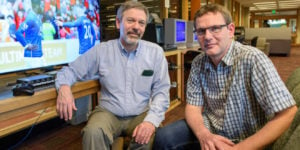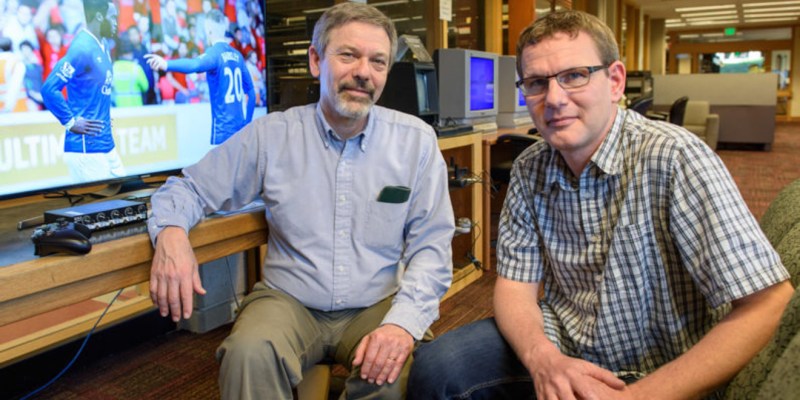
Owing to a faculty-student initiative created three years ago to encourage discourse on the scholarly value of games and interactive media, faculty and student members of Games and Interactive Media at Stanford (GAIMS) are now pushing for more extensive academic undertakings in the field.
These game enthusiasts hope to break traditional views of games as merely easy ways to learn math skills or enjoy oneself; Daniel Schwartz, dean of the Graduate School of Education, emphasizes the power of “good” games.
“People often think of games as wonders of reward,” Schwartz told Stanford News. “But the best games are a wonder of discovery and rich experience.”
Schwartz’s lab integrates cognitive science, classroom experience and programming expertise to develop educational technologies with emphasis on the power of spatial cognition, or how people acquire knowledge about their environment. They have made educational games for smartphones, computers and other interactive teaching technologies.
To engage the broader Stanford community, GAIMS hosts a weekly open seminar series called Interactive Media and Games Seminar Series. These seminars cover a wide range of topics concerning the academic, societal, technical, artistic and economic impact of these media.
This quarter, the series will discuss the survival of the non-online strategy game Dungeons & Dragons in an age of online trolls, learn about game play from the first professional gamer Dennis Fong and trace the beginnings of the video game industry with Allan Alcorn, designer engineer of the first sports arcade video game Atari Pong.
In accordance with the interdisciplinary nature of games and interactive media, the speakers of these seminars represent five of Stanford’s seven schools, and the seminar leaders hail from diverse academic departments. For instance, seminar leader Ingmar Riedel-Kruse is an assistant professor of bioengineering, while Henry Lowood is curator for History of Science and Technology and Film and Media collections at Stanford University Libraries.
Kruse’s lab has developed a smartphone microscope, an interactive cloud lab and a DIY robotics kit which people can use to learn about biology, experiment and explore. Both science and games, he explained, share a foundational sense of play.
Others with a passion for games argue that their academic reach extends beyond a relationship with science and technology. Paul Wallace, a graduate fellow in the modern thought and literature program, argues for the importance of studying the cultural impact of games, extending the scope of research to “echo chambers” that encourage like-mindedness within social media and the proliferation of fake news.
“The study of interactive media and games can help us understand rule-based participatory systems and how they operate amongst different demographics,” Wallace said. “Even a simple smartphone game could tell us about the nature of addiction, agency and pleasure.”
Wallace also co-leads a Critical Gaming workshop with two other graduate fellows, Natalie Deam from the French department and Douglas Eacho from the department of theater and performance studies.
The organizers of the series hope to seize the intersection of interactive technology, software and design thinking that thrives at Stanford, as well as the University’s location at the global center of gaming and interactive media. This environment, they say, provides a ripe opportunity to further studies in the field.
“It could also encourage students to agitate a little more for a program to address what they’re interested in,” Lowood said.
Contact Surbhi Sachdeva at surbhi3 ‘at’ stanford.edu.
